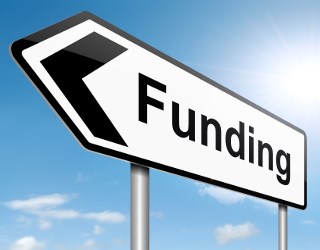 Manufacturing
Provision of subscription for access to statistical databases and knowledge products for 3 years
Manufacturing
Provision of subscription for access to statistical databases and knowledge products for 3 years
Provision of subscription for access to statistical databases and knowledge products for 3 years
Provision of subscription for access to statistical databases and knowledge products for 3 years has been closed on 08 Aug 2021. It no longer accepts any bids. For further information, you can contact the United Nations Capital Development Fund
Bellow, you can find more information about this project:
Location: Ethiopia
General information
United Nations Capital Development Fund
Manufacturing
Closed
Timeline
23 Jul 2021
08 Aug 2021
Not available
Contacts
Description
Receive Daily Tenders and Grants notifications
Subscribe nowFeatured tenders
-
 Tender
26 Jul 2021
Ethiopia
ETH2739 – Recruitment of International Consultant Project Lead – Africa Fellows Programme
United Nations Capital Development Fund
Tender
26 Jul 2021
Ethiopia
ETH2739 – Recruitment of International Consultant Project Lead – Africa Fellows Programme
United Nations Capital Development Fund
-
 Tender
06 Feb 2022
Ethiopia
DATA COLLECTION FOR A RETURN INTENTION SURVEY FOR REFUGEES FROM SUDAN AND SOUTH SUDAN LIVING IN ETHIOPIA (GAMBELLA, ASSOSA AND URBAN)
United Nations Capital Development Fund
Tender
06 Feb 2022
Ethiopia
DATA COLLECTION FOR A RETURN INTENTION SURVEY FOR REFUGEES FROM SUDAN AND SOUTH SUDAN LIVING IN ETHIOPIA (GAMBELLA, ASSOSA AND URBAN)
United Nations Capital Development Fund
-
 Tender
23 Aug 2021
Ethiopia
ESTABLISHMENT OF A TWO-YEAR LOCAL FRAME AGREEMENT FOR THE SUPPLY OF 20 & 10 LITERS RIGID JERRY CANS AND 15 LITERS BUCKETS FOR UNHCR OPERATIONS IN ETHIOPIA WITH A POSSIBILITY OF ONE YEAR EXTENSION
United Nations Capital Development Fund
Tender
23 Aug 2021
Ethiopia
ESTABLISHMENT OF A TWO-YEAR LOCAL FRAME AGREEMENT FOR THE SUPPLY OF 20 & 10 LITERS RIGID JERRY CANS AND 15 LITERS BUCKETS FOR UNHCR OPERATIONS IN ETHIOPIA WITH A POSSIBILITY OF ONE YEAR EXTENSION
United Nations Capital Development Fund
-
 Tender
25 Jan 2022
Ethiopia
Study to the development of Ethiopia's Agro-Commodity Procurement
United Nations Capital Development Fund
Tender
25 Jan 2022
Ethiopia
Study to the development of Ethiopia's Agro-Commodity Procurement
United Nations Capital Development Fund
-
 Tender
03 Dec 2021
Ethiopia
Business plan development and training for agribusiness management and marketing in Ethiopia
United Nations Capital Development Fund
Tender
03 Dec 2021
Ethiopia
Business plan development and training for agribusiness management and marketing in Ethiopia
United Nations Capital Development Fund
Get free access to our Tenders & Grants Database
Our service is free of charge and will always be
Join NowDonors
-
 Asian Development Bank
Asian Development Bank
-
 BANCO CENTROAMERICANO DE INTEGRACION ECONOMICA
BANCO CENTROAMERICANO DE INTEGRACION ECONOMICA
-
 BELGIAN DEVELOPMENT AGENCY
BELGIAN DEVELOPMENT AGENCY
-
 COMMONWEALTH SECRETARIAT
COMMONWEALTH SECRETARIAT
-
 EAST AFRICAN COMMUNITY
EAST AFRICAN COMMUNITY
-
 EUROPEAN AGENCY FOR THE MANAGEMENT OF OPERATIONAL COOPERATION AT THE EXTERNAL BORDERS OF THE MEMBER STATES OF THE EUROPEAN UNION
EUROPEAN AGENCY FOR THE MANAGEMENT OF OPERATIONAL COOPERATION AT THE EXTERNAL BORDERS OF THE MEMBER STATES OF THE EUROPEAN UNION
-
 KREDITANSTALT FUR WIEDERAUFBAU (RECONSTRUCTION CREDIT INSTITUTE)
KREDITANSTALT FUR WIEDERAUFBAU (RECONSTRUCTION CREDIT INSTITUTE)
-
 ORGANISATION FOR ECONOMIC CO-OPERATION AND DEVELOPMENT
ORGANISATION FOR ECONOMIC CO-OPERATION AND DEVELOPMENT
-
 UNITED NATIONS (SECRETARIAT)
UNITED NATIONS (SECRETARIAT)
-
 UN HIGH COMMISSIONER FOR REFUGEES
UN HIGH COMMISSIONER FOR REFUGEES